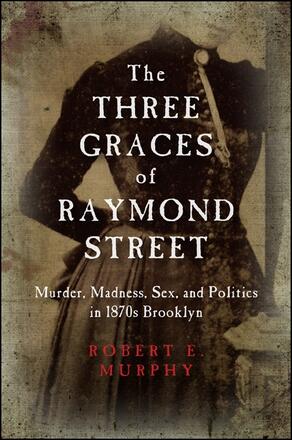
The Three Graces of Raymond Street
Murder, Madness, Sex, and Politics in 1870s Brooklyn
Alternative formats available from:
A compelling story about three murders in Brooklyn between 1872 and 1873 and the young women charged with the crimes.
Description
Between January 1872 and September 1873, the city of Brooklyn was gripped by accounts of three murders allegedly committed by young women: a factory girl shot her employer and seducer, an evidently peculiar woman shot a philandering member of a prominent Brooklyn family, and a former nun was arrested on suspicion of having hanged her best friend and onetime convent mate. Two were detained at the county jail on Raymond Street, while one remained at large, and her pursuit and eventual arrest was complicated by dissension in the police department. Lawyers for all three women prepared insanity defenses, and citizens thronged the courtrooms to witness the suspenseful trials. An intriguing account of the events surrounding the cases, which became entwined with Brooklyn's politics and religious differences, The Three Graces of Raymond Street offers insights into the sexual mores of the times and illustrates the development of the modern American city.
Robert E. Murphy is the author of Brooklyn Union: A Centennial History and After Many a Summer: The Passing of the Giants and Dodgers and a Golden Age in New York Baseball. He lives in Brooklyn.
Reviews
"…[Murphy's] accessible narrative provides a window on the morals and criminal justice system of late-19th-century Brooklyn. " — New York Times
"Well versed in the history of Brooklyn, Robert E. Murphy has delivered fascinating cultural pieces about the area and continues to do so with his new work. " — Brooklyn Daily Eagle
"Robert E. Murphy has done a wonderful job recreating the lost city of Brooklyn in the years following the Civil War. Through the stories of three women jailed for murder, he brings to life the personalities and places—and scandals—that made Brooklyn a vibrant, vital place. This is a terrific read. " — Terry Golway, author of Machine Made: Tammany Hall and the Creation of Modern American Politics